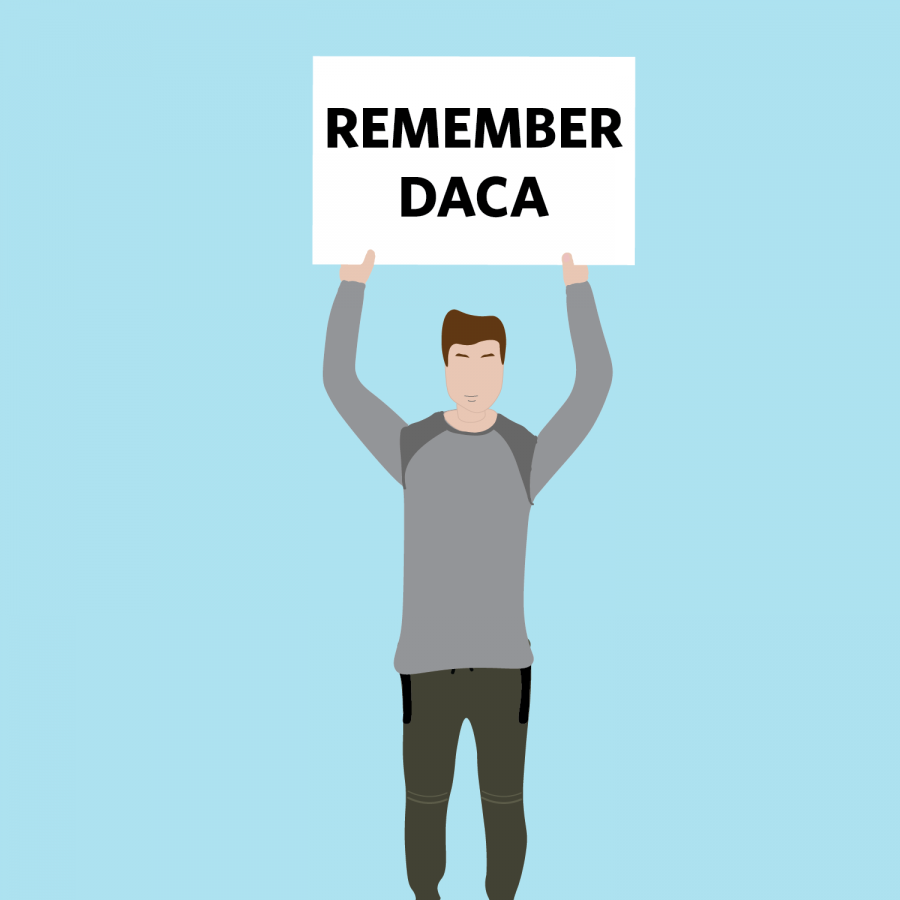The case against protecting DACA recipients lacks evidence
January 26, 2018
Washington recently ended its brief shutdown after a stopgap bill was passed to keep spending flowing and the government functioning.
The bill, however, was missing a large component of why the shutdown occurred in the first place: protection for the nearly 800,000 Deferred Action for Childhood Arrivals program recipients across the United States.
Despite not receiving immediate protections, part of the stopgap bill deal was the intention for Sen. Mitch McConnell to bring a DACA bill to the floor by Feb. 8. Whether this is a mere political act or a genuine attempt to find a solution has yet to be determined.
Regardless of the politics and policy of illegal immigration as a whole, the arguments against specifically protecting existing “Dreamers,” or those granted deferred action, lacks empirical backing.
The most general criticism of DACA is its perceived prioritization of undocumented immigrants over U.S. citizens.
Get The Daily Illini in your inbox!
It is perceived that the immigrants take the jobs and opportunities from U.S. citizens who rightfully deserve them — because they are actual citizens. Attorney General Jeff Sessions insisted that there are Americans who are looking to fill the spots of jobs that would go vacant by deporting undocumented immigrants.
Though on the surface this would appear to be a valid point, that argument can quickly be dispelled as nothing more than fear-pandering truthiness.
The raw economics of the matter show the U.S. is nearly at full employment while simultaneously having the most job openings in the country’s history, and there is no guarantee that removing immigrants from the economy will lead to citizen fulfillment of the open jobs.
The idea that naturalized citizens will occupy the then-vacant jobs by removing undocumented immigrants is known as the lump of labor fallacy.
Nobel Prize-winning economist Paul Krugman describes it as “the idea that there is a fixed amount of work to be done in the world, so any increase in the amount each worker can produce reduces the number of available jobs.”
This means kicking out DACA workers would be economically damaging by costing the U.S. nearly $460 billion in gross domestic product, or the value of all goods and services produced in a country over a period of time, in the next decade. That economic growth will be greatly needed in the near future.
With an aging population and the lowest birth rates in the history of the United States, more people are needed to work high-paying jobs to pay for the services that provide medical assistance or retirement funds to the elderly, like Social Security, Medicare and pensions.
At the current rate, there are not enough workers to comfortably pay for the aging population’s benefits, meaning that highly skilled immigrants (H-1B visa recipients) coming to America is exactly what the nation needs.
The resumes of DACA recipients show exactly that. The CATO institute found that a majority of DACA recipients are still in school and that 17 percent are pursuing advanced degrees of some sort. This means that a few years from now, a vast majority of DACA recipients will look like the highly desired H-1B visa immigrants.
Economics aside, Americans’ general beliefs show that 87 percent support “allowing young immigrants who entered the U.S. illegally as children to remain in the U.S.”
Even Republicans show a 79 percent approval for such policy. That is the textbook definition of what DACA aims to do.
To disregard both hard economics and American sentiments in favor of beliefs tied to hyper-partisanship would not only be amoral, but would also be actively working against the best interest of the United States going forward.
Austin is a sophomore in Media.







